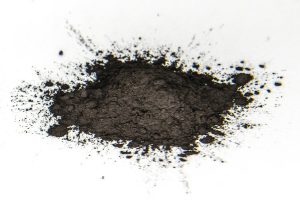Chromite Sand is a naturally occurring spinel consisting primarily of the oxides of chrome and iron. It is a by-product of ferro-chrome production and is mainly used in foundry applications and in glass production.
It is used as a highly fireproof sharpener for moulds and cores. Originally from South Africa. The sand is produced by crushing chrome ore and its washing in spiral concentrators, subsequent drying, dust cleaning, screening and sorting as per grain size.
Chemical Composition
Item | Unit | Index |
Cr2O3 | % | ≥46.0% |
SiO2 | % | ≤1.0% |
FeO | % | ≤26.5% |
CaO | % | ≤0.30% |
MgO | % | ≤10.0% |
Al2O3 | % | ≤15.5% |
P | % | ≤0.003% |
S | % | ≤0.003% |
Cr/Fe | 1.55:1 |
Physical Properties
Bulk Density | g/cm³ | 2.5-3 |
Color | / | Black |
PH | / | 7-9 |
The amount of the acid | / | ≤ 2 ML |
Percent soil | % | ≤0.1 |
Percent Moisture | % | ≤0.1 |
The sintered | ℃ | 1600 |
Percentage of free acid present in the sand | % | 0 |
Characteristics of chromite sand:
Chromite sand is a product processed by natural chromite ore through crushing and sieving. The main chemical composition of chrome ore is cr2o3. This kind of sand has a stable heating volume and high thermal conductivity. When in contact with molten metal, not only Very good resistance to alkaline slag, does not react with iron oxide, etc., and itself has the characteristics of solid phase sintering, can prevent the penetration of molten metal, avoid sanding defects, suitable for a variety of stainless steel, alloy Steel and carbon steel are gradually shaping raw sand and coatings for the core.

